
In this get-to-know-the-team series, we’re sitting down with our Taranis team to learn more about what makes them tick. From their background to their thoughts on the future of ag, we’re sharing a weekly 5-minute snippet. First up, get to know our 27th employee, Tim Pearson:
I grew up in an ag retail family in southeast Kansas. My dad would go to work in the dark and come home in the dark, basically eating supper at 11 o’clock every night. I thought it looked fun, so I decided to follow in his footsteps {insert sarcasm}. I went to school at Kansas State University and started my career with Cenex Analytics in Iowa as an agronomist. Over the next 30 years, I worked in various roles, including agronomist, fertilizer manager, and sales agronomist, across multiple states.


About five years ago, I got a call from a guy I didn’t know about a company I’d never heard of, offering technology I didn’t know existed. I thought, “Wow, if what this guy’s telling me is real, this is going to be the next big thing.” Within a week, I had an offer and joined Taranis as the 27th employee. From the initial phone call to talking with the sales manager and marketing manager, everything happened very quickly.
Taranis’ technology was a game-changer. The insights, AI, and how it made information more user-friendly for agronomists were impressive. The ability to see and understand field conditions without constant field visits was a significant improvement. If I’d had Taranis back in my retail days, my life would’ve been a lot easier. It would have made my day-to-day work much more efficient and less stressful.

The work-life balance is different now. I’m often on the road, but I also get to work from my home office. The demanding cycle of agronomy, with its long hours and constant stress, has been alleviated by Taranis’ technology. It would be kind of fun to go back to being a retail agronomist for just a week to see for myself the difference Taranis makes. I think it would be eye-opening to see how Taranis would reduce the chaos and stress in the busy season.
The level of relationship and loyalty between the grower, the retailer, and me is significantly enhanced by Taranis. The insights we provide are invaluable, allowing us to make informed decisions and build trust. Knowing that I can give growers the right information and that they trust me enough not to look elsewhere is priceless. It strengthens our relationships and ensures long-term loyalty.
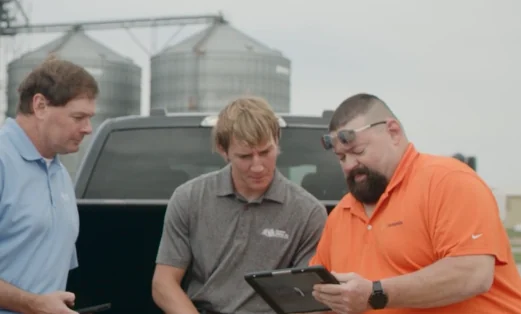
In five to ten years, AI-driven crop intelligence will be an integral part of every farming operation, much like auto-steer and GPS are today. Technologies like Taranis will be essential for making informed decisions, improving efficiency, and maximizing yields. The industry will continue to evolve, and Taranis will be at the forefront of that transformation.
The industry needs Taranis for several reasons. There’s a significant lack of labor, and not many young people are willing to walk fields all day. Taranis provides the insights and information needed to make informed decisions without the need for constant field visits. It helps mitigate risks, improve efficiency, and build stronger relationships between growers, retailers, and agronomists. Taranis is truly a game-changer in the agricultural industry.
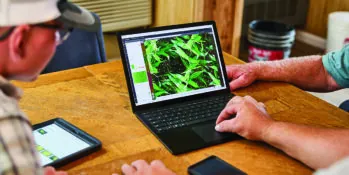
Discover the insights from southwest Wisconsin’s Premier Cooperative’s Sales Agronomist, Phil Thony, as he discusses the transformative impact of AI-driven insights in agriculture. Gain valuable perspectives on the shift towards digital scouting and the game-changing potential of Taranis in field management. Explore the prospects and challenges of adopting new technologies in farming for enhanced crop intelligence and customer service.
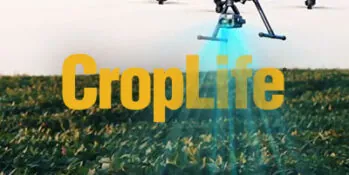
With an eye in the sky so powerful defoliation can be matched to the insect that caused it, Taranis’ AI-powered crop intelligence doesn’t just deliver data—the tool delivers insights, information, and, ultimately, action plans. Taranis’ value propositions have been nearly limitless, with operations finding ROI in having insights at their fingertips for accelerated decision-making.
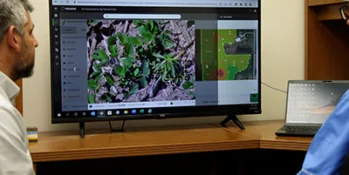
Starting a new lease off on the right foot is beneficial for both the landowner and farmer and can be achieved by aligning goals and establishing a transparent relationship built on honesty and trust.